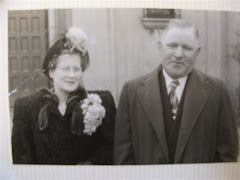Wednesday, March 12, 2008
Sabbatean Messianism as Proto Secularism « hanktherank
Sabbatean Messianism as Proto Secularism « hanktherank: "e power structures of Ottoman Jewish communities were elaborate,
with the conservative structures and rabbinic councils and the “Haham
Basi” (chief rabbinate in Istanbul) being threatened by the Alliance.
The traditional leadership had tense relations with Zionist elements
about community authority in the Holy Land. The millet structure gave
the Haham Basi authority which the new settlers in Palestine rejected.
It reached a degree where the Haham Basi of Jerusalem – Raphael
Efendi
- complained to the Turkish Foreign Minister that the Ashkenazi Jews
of the Holy Land were not obeying the laws of the Jewish community and
the millet community structure over which he lorded. Differences were
not only the result of ethnic, Ashkenazi-Sephardi mores but because
the immigrants to the Holy Land were shedding religious observance
altogether in favour of socialism and secularism. Despite attempts to
work with them, including Herzl’s twice successful appeal to Haham
Basi – Moshe Levi - to get an audience with the Sultan (1902) to
discuss the question of Jewish autonomy in Palestine, the relationship
soured.
It is curious that Israel’s first and second Pr"
with the conservative structures and rabbinic councils and the “Haham
Basi” (chief rabbinate in Istanbul) being threatened by the Alliance.
The traditional leadership had tense relations with Zionist elements
about community authority in the Holy Land. The millet structure gave
the Haham Basi authority which the new settlers in Palestine rejected.
It reached a degree where the Haham Basi of Jerusalem – Raphael
Efendi
- complained to the Turkish Foreign Minister that the Ashkenazi Jews
of the Holy Land were not obeying the laws of the Jewish community and
the millet community structure over which he lorded. Differences were
not only the result of ethnic, Ashkenazi-Sephardi mores but because
the immigrants to the Holy Land were shedding religious observance
altogether in favour of socialism and secularism. Despite attempts to
work with them, including Herzl’s twice successful appeal to Haham
Basi – Moshe Levi - to get an audience with the Sultan (1902) to
discuss the question of Jewish autonomy in Palestine, the relationship
soured.
It is curious that Israel’s first and second Pr"
Subscribe to:
Post Comments (Atom)





.jpg)

.jpg)

.jpg)


No comments:
Post a Comment